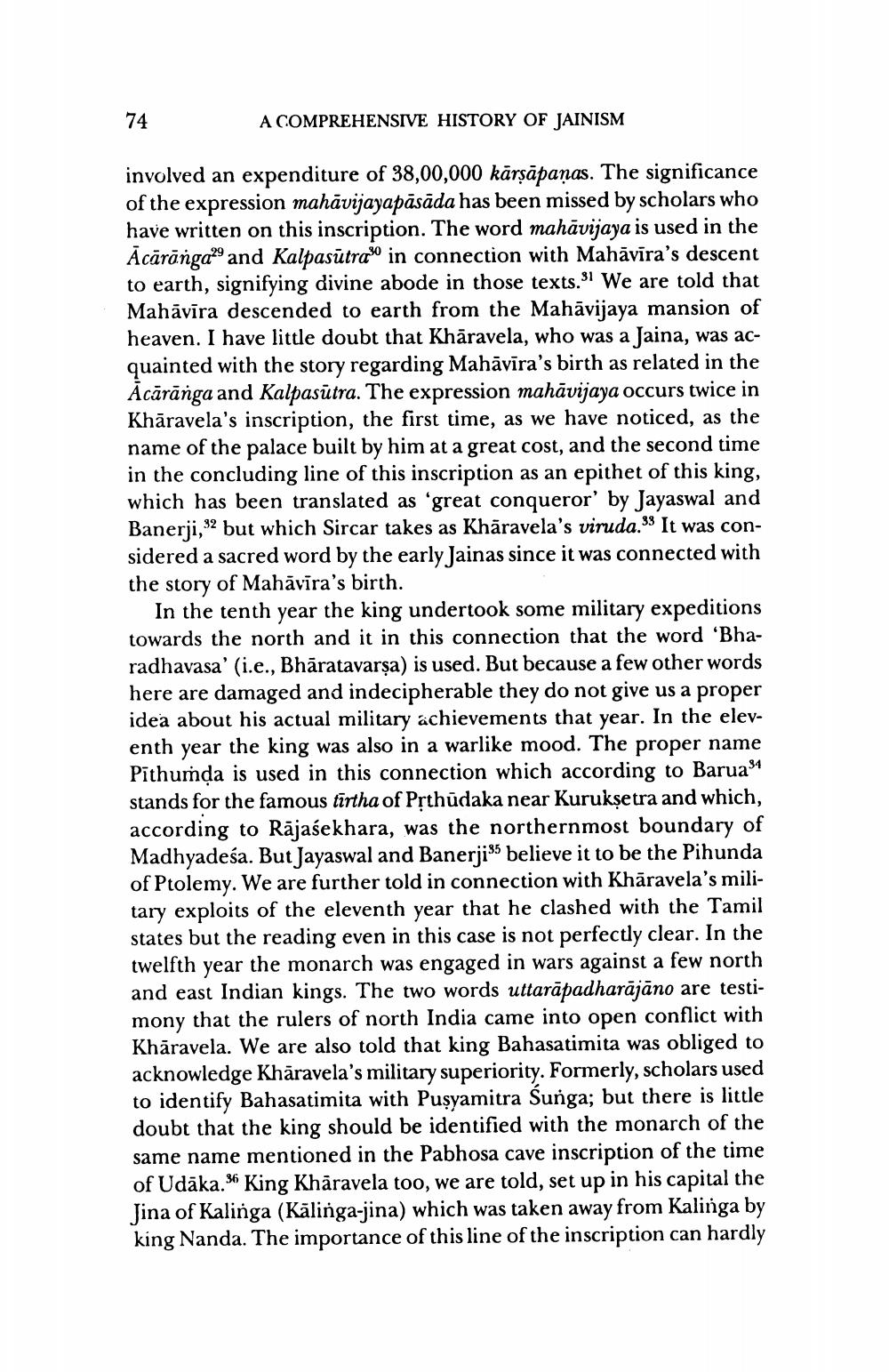________________
A COMPREHENSIVE HISTORY OF JAINISM
involved an expenditure of 38,00,000 kārşāpaņas. The significance of the expression mahāvijayapāsāda has been missed by scholars who have written on this inscription. The word mahāvijaya is used in the Ācārānga” and Kalpasūtra in connection with Mahāvīra's descent to earth, signifying divine abode in those texts. We are told that Mahāvīra descended to earth from the Mahāvijaya mansion of heaven. I have little doubt that Khāravela, who was a Jaina, was acquainted with the story regarding Mahāvīra's birth as related in the Ācārānga and Kalpasūtra. The expression mahāvijaya occurs twice in Khāravela's inscription, the first time, as we have noticed, as the name of the palace built by him at a great cost, and the second time in the concluding line of this inscription as an epithet of this king, which has been translated as 'great conqueror' by Jayaswal and Banerji, 32 but which Sircar takes as Khāravela's viruda. 33 It was considered a sacred word by the early Jainas since it was connected with the story of Mahāvira's birth.
In the tenth year the king undertook some military expeditions towards the north and it in this connection that the word 'Bharadhavasa' (i.e., Bhāratavarşa) is used. But because a few other words here are damaged and indecipherable they do not give us a proper idea about his actual military achievements that year. In the eleventh year the king was also in a warlike mood. The proper name Pīthumda is used in this connection which according to Barua $4 stands for the famous tīrtha of Prthūdaka near Kuruksetra and which, according to Rājasekhara, was the northernmost boundary of Madhyadeśa. But Jayaswal and Banerjibelieve it to be the Pihunda of Ptolemy. We are further told in connection with Khāravela's military exploits of the eleventh year that he clashed with the Tamil states but the reading even in this case is not perfectly clear. In the twelfth year the monarch was engaged in wars against a few north and east Indian kings. The two words uttarāpadharājāno are testimony that the rulers of north India came into open conflict with Khāravela. We are also told that king Bahasatimita was obliged to acknowledge Khāravela's military superiority. Formerly, scholars used to identify Bahasatimita with Pusyamitra Sunga; but there is little doubt that the king should be identified with the monarch of the same name mentioned in the Pabhosa cave inscription of the time of Udāka.36 King Khāravela too, we are told, set up in his capital the Jina of Kalinga (Kalinga-jina) which was taken away from Kalinga by king Nanda. The importance of this line of the inscription can hardly




